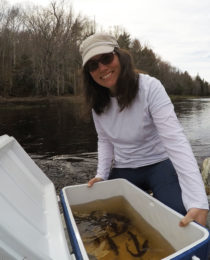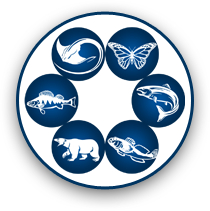
Dr. Christina Semeniuk
Associate Professor
2013 to present
semeniuk@uwindsor.ca
The unifying thread driving my research program is a focus on how human disturbance affects adaptive decisions of organisms as they attempt to optimize competing fitness-maximizing goals, and how these resulting tradeoffs ultimately modify the persistence and resilience of wildlife populations. My experience with conservation issues is based on a strong theoretical background in behavioural ecology that is combined with field studies, state-of-the-art quantitative methods such as agent-based modeling and system dynamics modeling, quantitative statistics, econometric models of human behaviour, and GIS applications. I joined the Great Lakes Institute for Environmental Research at the University of Windsor in January 2013.













